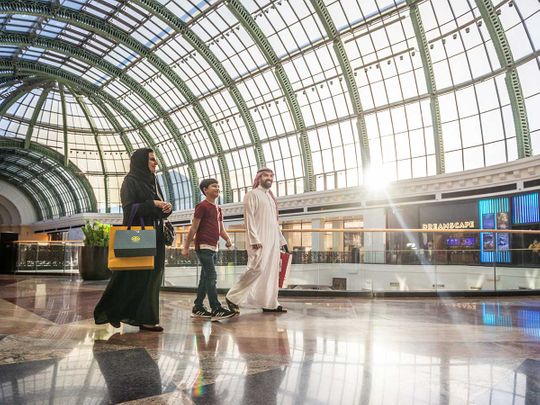
Dubai: Retailers in the UAE are placing orders early and in bulk for the end-of-year shopping spree that consumers – residents and tourists – will likely engage in. Because after two years of juggling with supply delays over the holiday buying season, retailers want to remove any possibility of not having enough stock when shoppers come calling.
There’s another factor behind retailers starting with their end-of-year order placements now. The word is that many of those flying in and out of the UAE to watch the FIFA World Cup in Doha will stay on for longer at their hotels here even after the matches are over. This would mean more holiday-related spending coming for UAE’s retailers.
“Travel agencies and airlines are already telling us that booking demand from mid-November (when the World Cup starts) is unprecedented,” said the CEO at one of the biggest fashion retail networks in the region. “These are high-spending arrivals, and no retailer, F&B, leisure or entertainment services provider can miss out.
“If we add to the usual demand for end-of-year sales from residents and the non-World Cup tourist arrivals, December 2022 is going to be exceptionally busy. Which is why retailers have to plan their stock purchases and finalize delivery schedules now. Delays will hurt.
“We are already seeing that happen with new car sales in the UAE, where the waiting period still would be 3-6 months on most models.
Apple's way with iPhones
Amidst all the talk about higher spending, there are concerns about inflation and what this would mean for merchandise costs. The strategy among brands and retailers is to keep prices near constant, where possible. Something that Apple has followed with its latest iPhone 14 range.
“Despite the add-on features for the 14, Apple’s pricing is what makes the most sense this year – and iPhone sales are doing well despite consumers tightening spending,” said the CEO. “Retailers and brands in other categories will do well to match that.”

Can retailers absorb costs?
But can retailers afford not to pass on the higher costs? “We expect inflation to stay with us for some time,” said Baris Oran, CFO of US-headquartered GXO, one of the biggest names in the global contract logistics space. “More than ever, businesses are focused on de-risking their supply chains and looking for strategic, reliable, long-term solutions to optimize operations.
“The logjams we’ve all seen are mostly due to backups at the port and the challenge getting goods to their final destinations. We are seeing more companies looking to make more strategic decisions to ‘near-shore’ product. This can provide them more predictability and agility in the supply chain.”
That’s exactly what the big retailers in the UAE are doing, in tandem with their brand partners. What no one wants to see are goods in demand being stuck at ports in other countries ahead of the busiest buying season of the year.
“New car owners might be willing to wait months for delivery – but not many other categories can say the same about their customers,” said a retailer based in Dubai. “And definitely not when it comes to fashion.”

Supply chains have been tested like never before, first with the pandemic, the dramatic shift to ecommerce, then labor and inflation challenges, and now the situation in Ukraine. These challenges have shaped the future of our industry and they’ve changed the way we work with customers
Container costs
It remains a mixed picture when it comes to container availability. While shortages are not as dire as during the peak of the pandemic phase, especially those from China, there are still other problems that shippers need to deal with.
“Container prices for the rest of 2022 will be driven by multiple factors – namely, the rising inflation, consumer confidence, Covid restrictions, labour shortages and/or disruption, port congestions,” said Rosh Manoli, Vice-President for Freight Forwarding at Consolidated Shipping Services. “Shipping rates from Asia to Middle East have plummeted in the last month.
There is weakening demand from Western markets this year, which has drastically dragged down shipping rates over the last couple of months despite some of the continuing disruptions. Historically, during this time, there is a peak season surcharge before the Chinese national holidays - but there is no sign of any increase being applied this year."
That adds up to some relief for UAE retailers and, by extension, shoppers too. If shipping costs are on the slide, this will show up in some form or other when shoppers check out prices on their year-end indulgences. So, will December '22 prove a breakout month for consumer spending?

Shipping rates from Asia to Middle East have plummeted in the last month.











